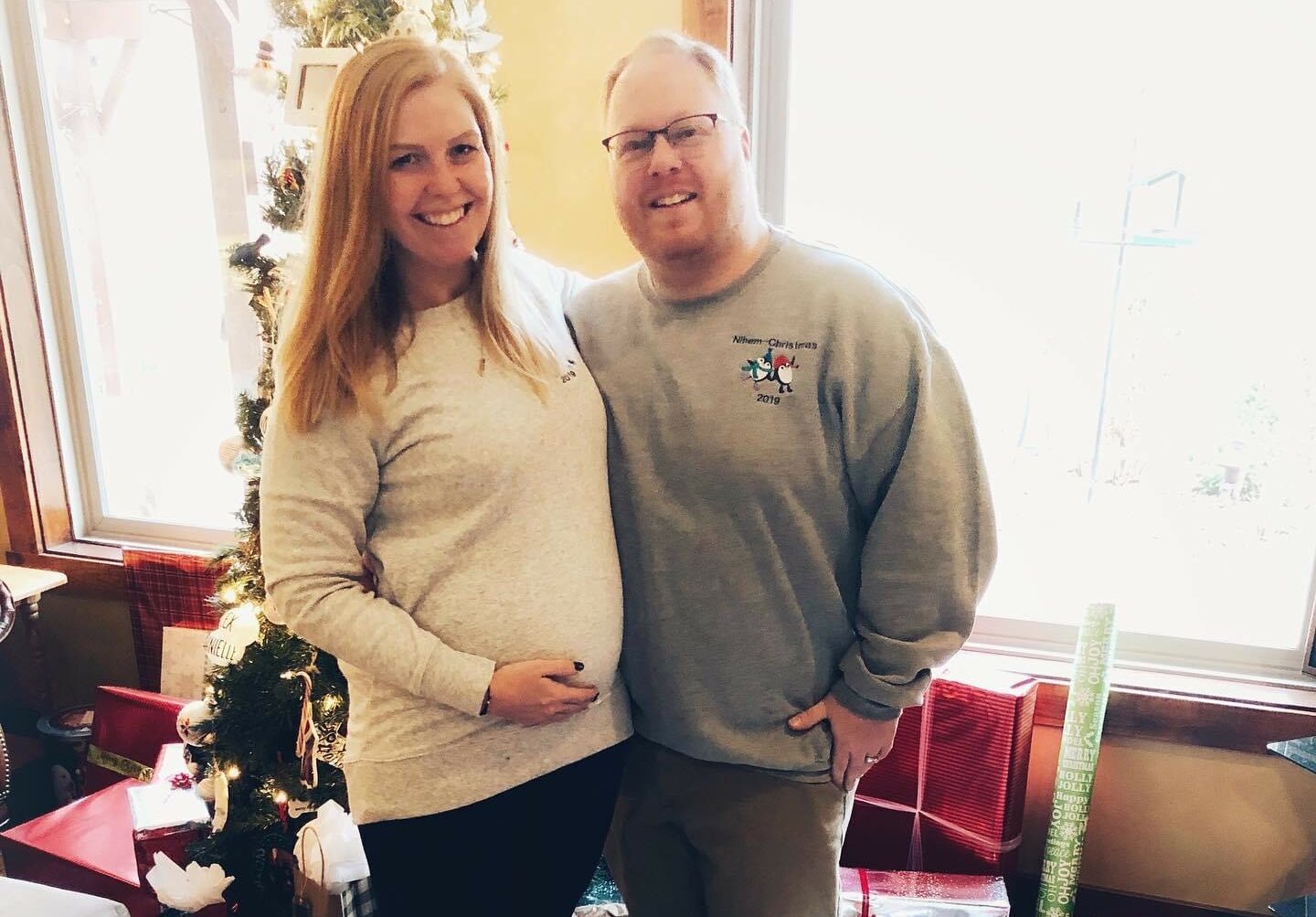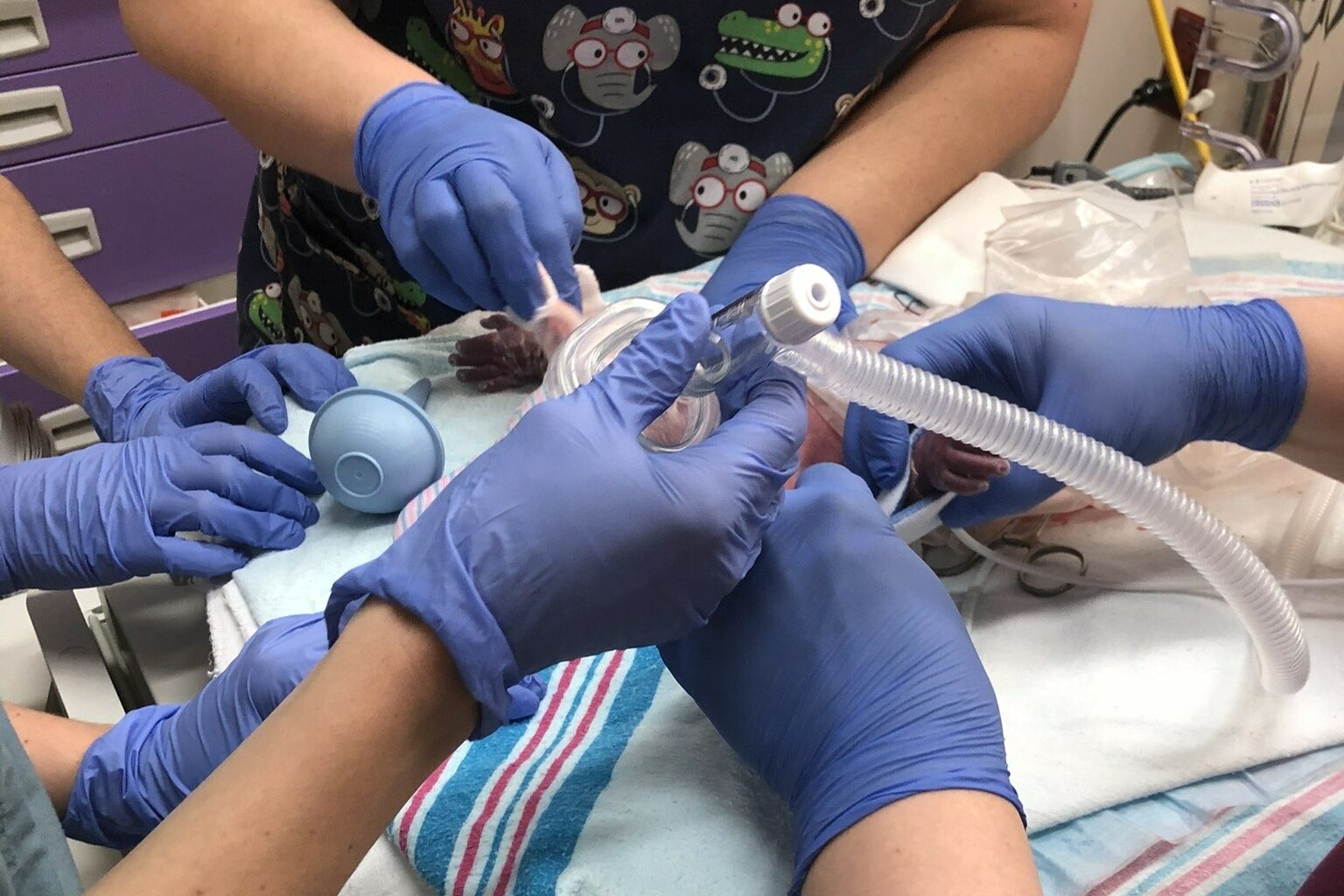DISCLAIMER: To raise awareness around birth trauma, this is the writer’s personal, real, and raw story. This blog details high risk pregnancy, rare syndrome diagnoses, and discussions around loss/grieving. Please read with care.
Birth Trauma Awareness Week is observed each year in July. As a mom who went through a traumatic birth experience, I find it important to share my story. I hope this story shines a light and shares some hope for whoever may be experiencing something similar.
My birth trauma experience carried on for months post-birth. Watching our son fight for his life for months in the NICU was also traumatizing. I have spent the past four years healing from this experience. My strength to share our story comes from the solid foundation we have built around our family now.
 It all began at 12 weeks; we knew something was wrong at the initial ultrasound.
It all began at 12 weeks; we knew something was wrong at the initial ultrasound.
Our son’s heart was too small. We were told multiple times that the pregnancy would miscarry; there was nothing to do but wait or terminate. Those early days were when I found myself a therapist and spent every single day in constant fear, wanting to give up more times than I’d like to admit.
In those dark days, my therapist and I made a plan to meet weekly, while also holding onto my daily yoga and meditation rituals. I spent time every morning in silent reflection with a cup of coffee and my mantra: Trust the process.
Then, on Christmas Eve, we had a second opinion scheduled at another hospital, and that’s where we began to have a spark of hope.
Around 22 weeks, the cardiologist team did an echocardiogram in-utero. They told us that if he survived birth, his heart would be strong enough. There were other huddles to get through–still, there was only a 10-20% chance of surviving birth. But we held on. We went home to our family for the holiday and celebrated this little Christmas miracle.
After weeks of trips to the specialist and ultrasounds, our medical team recommended an in-utero procedure. We immediately agreed and Dr. Deborah Berman became not only our hero, but our friend for life. During the procedure, I was awake and alert. There was excess fluid in my son’s abdomen and the doctor used a large needle, syringes, and an ultrasound machine to remove 200 cc of fluid. I felt strong in the decision to trust the medical team and laid there watching it all on the ultrasound machine.
There was something so powerful about watching the fluid being removed, along with my fear of it. It was like watching magic as the fluid was removed from his little body, and he immediately felt relief.
However, a few days after the procedure, my water broke around 24 weeks.
I was admitted to the hospital until I gave birth. Again, the statistics were read to me. We were told the likelihood of giving birth within the first 48 hours of being admitted were high and likely. We were told it was too early; told he most likely won’t survive. Dr. Berman immediately researched and got us into a medical study of the complex pregnancy and we were able to do full exome genetic testing.
We waited for the results while I remained pregnant and hospitalized. I physically felt well and had freedom to walk around the hospital. The nurses would take me to the gym so I could workout. My mom, dad, and husband rotated nights by my side. The nurses crocheted with me in the evenings during The Bachelor while we all held on to hope . . . and waited.
During this time I had therapy appointments, palliative care support, therapy dogs, friends (17 total came to visit), and a huge medical team. There were dark conversations–anything from burial gowns, to family photos, to a scary pandemic on the horizon. There was no discussion of a nursery, baby registry, or baby shower.
Twenty-six days later, I started having contractions.
One night when I was supposed to sleep alone, my girlfriend came up and we ate far too much pizza and laughed way too loud to be in a hospital. Then, I started having contractions. At first I thought it was just regular cramps and kept waving it off. The nurse gave me stool softeners and then finally called the doctor when I was still cramping hours later. I was too distracted with my friend who spent time painting my nails while inhaling Girl Scout cookies. Around midnight the medical team confirmed that it was time. I called my husband who already had the car packed for this moment, and he was there in a flash. After 26 days of waiting. It all went so fast.
The morning while I was in labor, Dr. Berman (our doctor who performed the earlier procedure) was on rotation. The stars had aligned, allowing Dr. Berman to not only be on staff that day, but to also be our delivery doctor.
But then things got real when Dr. Berman came in and excused my parents.
She told my husband and I that the genetic testing came back, and our son had Kabuki Syndrome. This was our first time learning of this syndrome, but luckily, the genetic specialist was available and had a wealth of experience. He told us about the different delays and struggles those with Kabuki Syndrome may have and what we could expect, should he survive birth.
But at that moment, I didn’t have time to learn anything new–I was giving birth today. Dr. Berman performed another in-utero procedure before delivery that was key to his survival. A few hours later, and after just a few big pushes, he was here. Crying, breathing, and on his own, whisked away to another OR. My husband left to be with him.
 My son’s birth day will live in my memory forever.
My son’s birth day will live in my memory forever.
I had this overwhelming calm feeling that everything was going to work out. This strength came from all the preparation I had done throughout the pregnancy. I knew no matter what the outcome, I had plans for either. Therapy, friends, yoga, and releasing the thought of “normalcy” guided me to this point. Despite the 10-20% survival rate, the long medical road ahead, the new diagnoses, and everything else that was thrown at me that day, I knew we would be okay–even if we weren’t.
I am forever grateful for my son and all that he is here to teach me. Sometimes it can be overwhelming and hard not to compare my experience and birth trauma to someone who may have had a “normal” birthing experience. But then I think of all that I have overcome, and in that I find power. If you or someone you know is going through an experience that may be similar, I encourage you to protect your peace, find the power from within, and never, ever compare your experiences to those of others.









